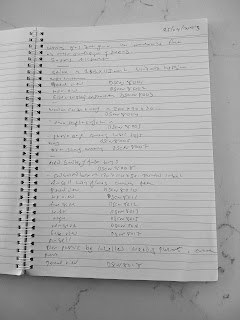For years, since 2007 in fact. I used to post links of things I found interesting to a certain microblogging site now known as X.
Well, as we know, there's been some changes with X, so on the back of them I took the opportunity not only to quit twitter, but also to abandon all the socials except for Mastodon, and even though I could have started using Mastodon in the same way as I did twitter, I decided to dial it down and post rarely.
That left me with a little problem - my loyal ex followers.
Amazingly, well to me anyway, some people actively followed my feed and used it as an information source, so to provide a bridge I started accumulating links and posting them to a wiki.
This wasn't terribly arduous - it probably took about an extra fifteen minutes out of my day to save the copied URL's to a text document, add required markup and copy and paste them into my wiki's edit window.
But it did demand that I had time every day to do this.
Well in the old days, when the internet was a plaything of academia, and before everything was always on 24/7 you could leave a .vacation message along the lines of
I am gone from my desk and may be away for a few weeks
and then disappear to the wilds of Anatolia or the rain forests of Laos and no one would care that much.
Well, we're going travelling again for the first time in ages - nowhere terribly exotic - and as I might not have time to post regularly, I decided to can the wiki posting experiment.
How much use it was to people I don't know, as I deliberately didn't turn on many metrics.
Personally, I found it a useful exercise to revisit my wiki editing skills, and certainly I'll be adding pages to my wiki site in the future.
It also helped me in the process of disengaging from social media by giving me a mechanism to withdraw from compulsively posting anything I found interesting rather than reading it analytically, something I think everyone is guilty of sometimes.
So it's been valuable - hopefully some other people have also got some value from it.
I'm not going totally silent - being a bit of an internet chatterbox I will be posting the odd thing to Mastodon but I'm going to try and keep it dialed down ...





